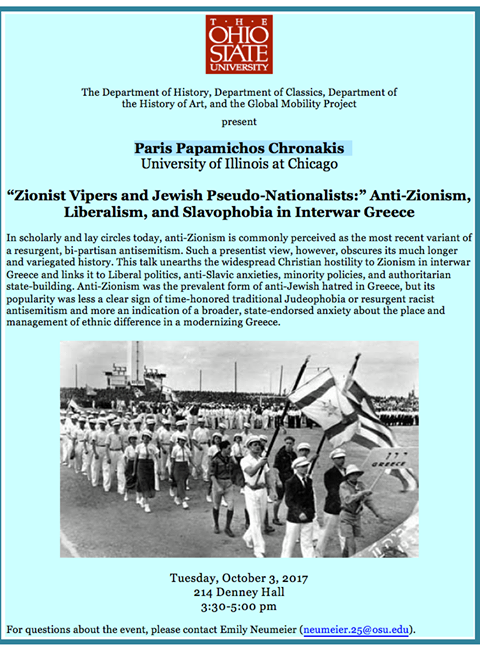 Ezé Wendtoin, a prominent West African musician will visit OSU Campus March 19-27. He has dedicated his work as a musician to increase understanding of different cultures in Germany. As a solo artist and together with the Dresden musician collective “Banda Internationale” he has stood against racism and xenophobia through music in concerts, theater, social projects, and in his work as an educator and scholar of German Second Language Acquisition. At the Ohio State, he will offer concerts, conversations and lectures to engage with our local students, artists and community.
Ezé Wendtoin, a prominent West African musician will visit OSU Campus March 19-27. He has dedicated his work as a musician to increase understanding of different cultures in Germany. As a solo artist and together with the Dresden musician collective “Banda Internationale” he has stood against racism and xenophobia through music in concerts, theater, social projects, and in his work as an educator and scholar of German Second Language Acquisition. At the Ohio State, he will offer concerts, conversations and lectures to engage with our local students, artists and community.
Find below the events open to the public which we encourage you to attend.
March 19:
12am: Public Lunch with graduate students, Research Commons 352, 18th Ave Library
1-2pm: Pop-Up Performances on the Oval
4-5.30pm: Lecture “Music in Foreign Language Education: Learning German through Music in Ouagadougou, Burkina Faso“, Arps 388, RSVP HERE
March 20:
12.45am-2.10 pm: “Studying Abroad: Sharing Experiences”, CLLC Lunch Discussion with music with Foreign Language Students students, Hagerty Hall courtyard/ Crane Café, lunch snacks will be provided, RSVP HERE
2.30-4.30pm: “Bringing Different Worlds Together Through Music”, student workshops in German and French, SIGN UP HERE
5-6.30pm: “Being African in Trump’s America“, Roundtable Discussion and Concert, Frank Hale Cultural Center, 153 W 12th Ave, Columbus, Ohio 43210
March 21:
2-3.30pm: Lunch with graduate students, Jennings Hall 050
4-5pm: Pop-Up Performances on the Oval
March 22:
3-3.30pm: Pop-Up Performances on the Oval
3.30-5pm: Musical Discussion with the Migration Studies Working Group, Research Commons, 350A, 18th Ave Library, RSVP by emailing migrationstudiesworkinggroup@gmail.com
March 27:
6pm: “Ezé Wendtoin” Collaborative Concert at the Global Gallery Café in Clintonville
More information can be found on www.u.osu.edu/ezewendtoin OR www.go.osu.edu/eze
More information about Student Workshops in German and French:
Bringing Different Worlds Together Through Music
In this workshop, Ezé uses music invites students of German and French to develop ways to think about and bring together different understandings of culture and living. He will incorporate your perspectives to encourage a learning environment in which you are able to learn with and from each other.
Ezé will talk about his work with different non-profit organizations and collectives (Atticus e.V., Lauter Leise in Sachsen, Banda Internationale). He will also present his visits to local schools in Germany, during which he talked with students about issues of racism, prejudice, and clichés, telling the students about how he has made his way to Germany, and what role music played for his journey. He will talk about Burkina Faso by presenting different photographic materials.
The workshop is open to students of German and French.
Workshop 1 (French): 3/20, 2.45-3.30pm
Workshop 2 (German): 3/20, 3.40- 4.25pm
There is no minimum proficiency level required. Students of different proficiency-levels are encouraged to participate. Each workshop holds 20 students.
Co-sponsored by the Department of Germanic Languages and Literatures (GLL), the Center for Languages, Literatures, and Cultures (CLLC), the Department of African American and African Studies (AAAS), the Migration Studies Working Group, the Department of Music and the Global Mobility Project.








